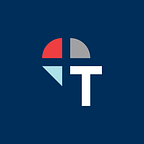Financial Wellness & Productivity: The Complete Financial Lives of Workers
Work arrangements, benefits, and employer practices are not meeting the needs of workers, a majority of whom are financially insecure. As part of our effort to harness worker financial data for structural change, we are thrilled to contribute data and insights to Aspen Institute’s Financial Security Program’s new report, The Complete Financial Lives of Workers: A Holistic Exploration of Work and Public and Workplace Benefit Arrangements.
The authors find that only “high income, full-time employees receiving workplace benefits stand a reasonable shot at financial security in our current system of private work and public benefit arrangements.”
Informed by Aspen’s Consumer Insights Collaborative of nine leading nonprofits to understand and amplify data about the financial lives of low- and moderate-income households, the report reveals how work arrangements and benefits together determine if workers will have a reasonable shot at financial security. It looks at how the current system is broken, and what we as businesses, philanthropists, policymakers, activists, and advocates should do about it.
The precariousness of workers’ financial lives, pre-covid-19 pandemic, combined with the suddenness of job losses and surge of demand for benefits overwhelmed state and federal systems, interrupted health insurance coverage mid-pandemic, and exposed the need for interoperability across public and private benefits to ensure support when it is needed most.
If work is to provide a pathway to financial security, public and workplace benefits must reflect the realities of 21st century employment, including a workforce increasingly engaged in nonstandard and sometimes multiple jobs, where job stability is not guaranteed. This reality requires business, philanthropy, and government to explore options that tie benefits directly to the individual rather than the job.
TrustPlus is an example of this model. Once you’re a TrustPlus client you stay a client even if you switch or leave jobs, ensuring continuity of support regardless of job status.
As we reimagine benefits for the 21st century, employers, policymakers, benefit providers, administrators, thought leaders and advocates can support worker financial security by ensuring benefits are accessible and affordable to all workers, regardless of work arrangements; providing options that help boost personal resources; and eventually integrating the delivery of benefits across public and private sectors.
